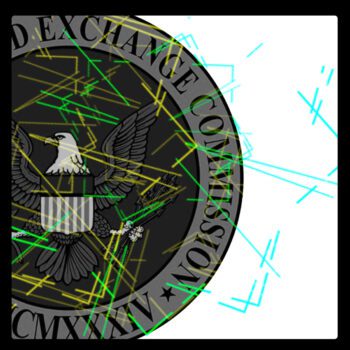|
thisCrowd - Audio Read
Getting your Trinity Audio player ready...
|
The United States Securities and Exchange Commission (SEC) has taken legal action against Richard Schueler, also known as Richard Heart within the crypto community, for allegedly conducting unregistered offerings of three tokens. In a recent filing in the U.S. District Court for the Eastern District of New York, the SEC claimed that Heart managed to raise over $1 billion through “the unregistered offer and sale of crypto asset securities,” involving HEX, PulseChain (PLS), and PulseX (PLSX). The complaint accused Heart of enticing investors with promises of grandiose wealth and hiring developers to maintain the framework behind these crypto assets.
According to the SEC, Heart’s actions violated federal securities laws and resulted in the fraudulent manipulation of retail investors both within the United States and abroad. The allegations primarily focused on the founder’s promises of significant returns to investors in exchange for massive deposits. Notably, Heart reportedly accepted more than 2.3 million Ether (ETH) – valued at around $678 million at the time – in exchange for HEX tokens, as well as substantial sums for future delivery promises of PLS and PLSX tokens.

The complaint further highlighted that Heart and PulseChain misappropriated at least $12.1 million of investor funds, using them for personal luxury purchases, such as a 555-carat diamond, expensive watches, and high-end automobiles, instead of developing and marketing the PulseChain network as promised.
Seeking justice, the SEC is pursuing permanent injunctive relief, disgorgement, prejudgment interest, and civil penalties against Heart and his associated projects. Despite residing in Finland, Heart faces a civil summons demanding a response to the SEC’s complaint within 21 days, lest he risks default judgment.
This lawsuit adds to the growing criticism of what some view as a “regulation by enforcement” approach to cryptocurrencies in the United States. The SEC has been actively investigating crypto exchanges like Coinbase and Binance for similar allegations of unregistered securities offerings.
Even within the crypto space, HEX faced skepticism despite its token price experiencing significant gains, reaching an all-time high of approximately $0.48 in 2021. However, news of the SEC’s lawsuit led to an immediate 26% drop in HEX’s value.
In response to the SEC’s scrutiny, Heart appeared to be removing references to HEX, PulseChain, and PulseX from his social media posts and profiles, as observed by many. Notably, Heart’s X bio stated that he avoids reading messages, emails, newspapers, and nearly any form of communication, emphasizing his apparent indifference to external influence.
The SEC’s complaint outlines how Heart began marketing HEX as the first high-yield “blockchain certificate of deposit” in 2018, positioning it as an investment that could make people wealthy. Allegedly, from late 2019 to 2020, Heart conducted unregistered offerings, amassing more than 2.3 million Ethereum (ETH) through so-called “recycling” transactions to gain control of additional HEX tokens. Additionally, between July 2021 and March 2022, Heart orchestrated two more unregistered offerings that raised hundreds of millions of dollars for the development of PulseChain and PulseX networks.
Heart’s fraudulent activities extended to promoting a “staking” feature for HEX tokens, promising returns as high as 38%. To evade securities laws, he called on investors to “sacrifice” rather than “invest” their crypto assets in exchange for PLS and PLSX tokens.
The SEC’s charges against Richard Heart and his entities signal a determined effort to protect investors and maintain integrity within the crypto space. As the case unfolds, it could set significant precedents for regulating token offerings and fraudulent practices in the cryptocurrency industry.
















































